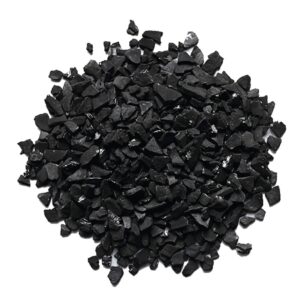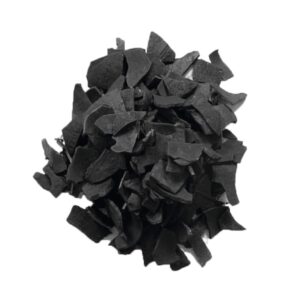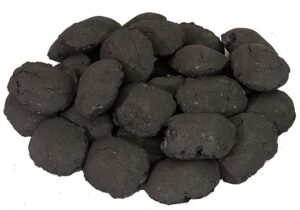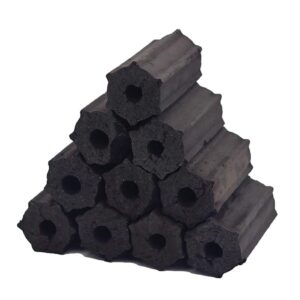€105.00
| Material | 100% Natural coconut shell charcoal; No artificial chemicals |
|---|---|
| Ash Content | 2.0 – 2.5% |
| Ash Color | Light and white |
| Calories | 7,200 – 7,500 Kcal/kg |
| Fixed Carbon | ± 80% |
| Moisture | ≤ 5% |
| Volatile Matter | ≤ 15% |
| Burning Time | ± 2.5 hours; No odors, No smoke, No sparks |
| Condition | No cracks or black spots |
To enhance your shisha/hookah experience, these Coconut Charcoal Briquettes are composed of quality 100% natural coconut shell charcoal. They have gorgeous light white ashes, consistently high calories, and a long burn period. There is no smoke, sparks, or scents, and the flame burns evenly across the surface at high heat with a hot burning color.
Our Coconut Charcoal Briquettes are made of 100% coconut charcoal from the best plantations in around the world and have no aftertaste or headaches. They are the cleanest, healthiest, and most environmentally friendly form of charcoal available today. In the process, not a single tree was felled. Sizes and forms include cubic, cylindrical, hexagonal, flat/brick, and mercy/cloud.
Pellet fuels (or pellets) are a type of solid fuel made from compressed organic material. Pellets can be made from any one of five general categories of biomass: industrial waste and co-products, food waste, agricultural residues, energy crops, and untreated lumber. Wood pellets are the most common type of pellet fuel and are generally made from compacted sawdust and related industrial wastes from the milling of lumber, manufacture of wood products and furniture, and construction.
Other industrial waste sources include empty fruit bunches, palm kernel shells, coconut shells, and tree tops and branches discarded during logging operations. So-called “black pellets” are made of biomass, refined to resemble hard coal and were developed to be used in existing coal-fired power plants. Pellets are categorized by their heating value, moisture and ash content, and dimensions. They can be used as fuels for power generation, commercial or residential heating, and cooking.
Pellets are extremely dense and can be produced with a low moisture content (below 10%) that allows them to be burned with a very high combustion efficiency. Further, their regular geometry and small size allow automatic feeding with very fine calibration. They can be fed to a burner by auger feeding or by pneumatic conveying. Their high density also permits compact storage and transport over long distance. They can be conveniently blown from a tanker to a storage bunker or silo on a customer’s premises.








Reviews
There are no reviews yet.